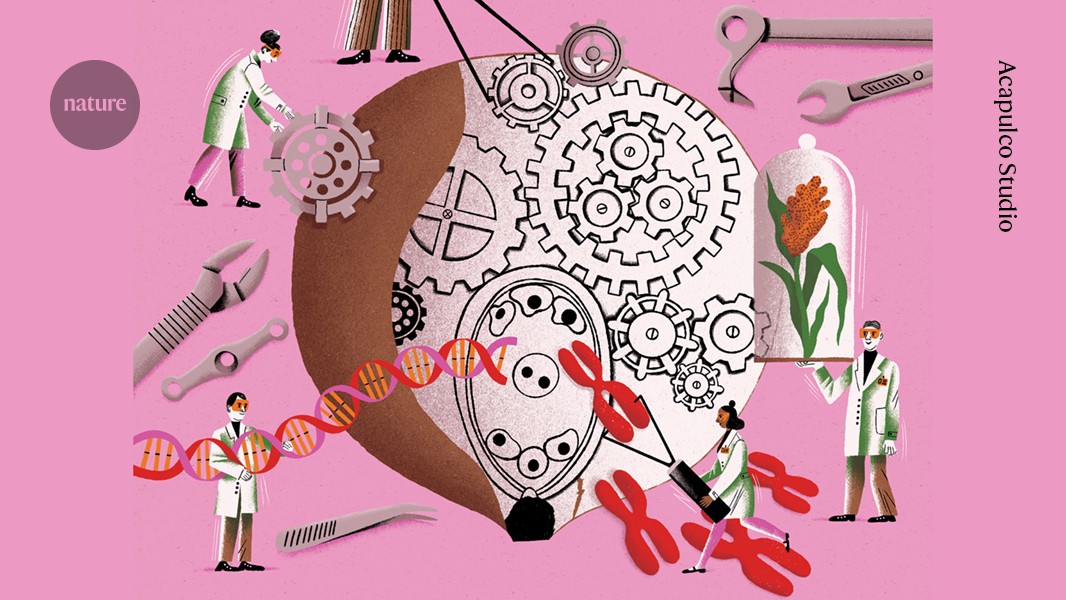
"If the trial is a success, each plant will bypass sexual reproduction and will set seed to thousands of clones in each flower head. The Hy-Gain sorghum trial is the culmination of decades of work for plant physiologist Anna Koltunow at the University of Queensland in Brisbane, Australia, who began research to make 'sexless seeds' in the early 1990s. The technology exploits a quirk of nature - known as apomixis."
"Koltunow says her work promises to give smallholder farmers in sub-Saharan Africa access to affordable high-yielding sorghum ( Sorghum bicolor) and cowpea ( Vigna unguiculata) crops. Those farmers could save the clonal seeds to sow for several years, further reducing costs. These are some of the reasons that Koltunow's research is supported by the Gates Foundation, a charity in Seattle, Washington."
Trials of a Hy-Gain sorghum are slated to begin in eastern Australia under a mesh containment canopy, using genetic approaches to trigger apomixis so plants bypass sexual reproduction and produce clonal seeds. Apomixis naturally occurs in more than 300 flowering species but is absent from major grain crops. Engineered apomixis could allow farmers to save high-yielding seed for multiple seasons, reducing input costs for smallholders. Development has involved decades of research at the University of Queensland and has attracted support from the Gates Foundation and collaboration with Corteva Agriscience. Apomixis could also shorten breeding time and lock desirable traits in new varieties.
Read at Nature
Unable to calculate read time
Collection
[
|
...
]